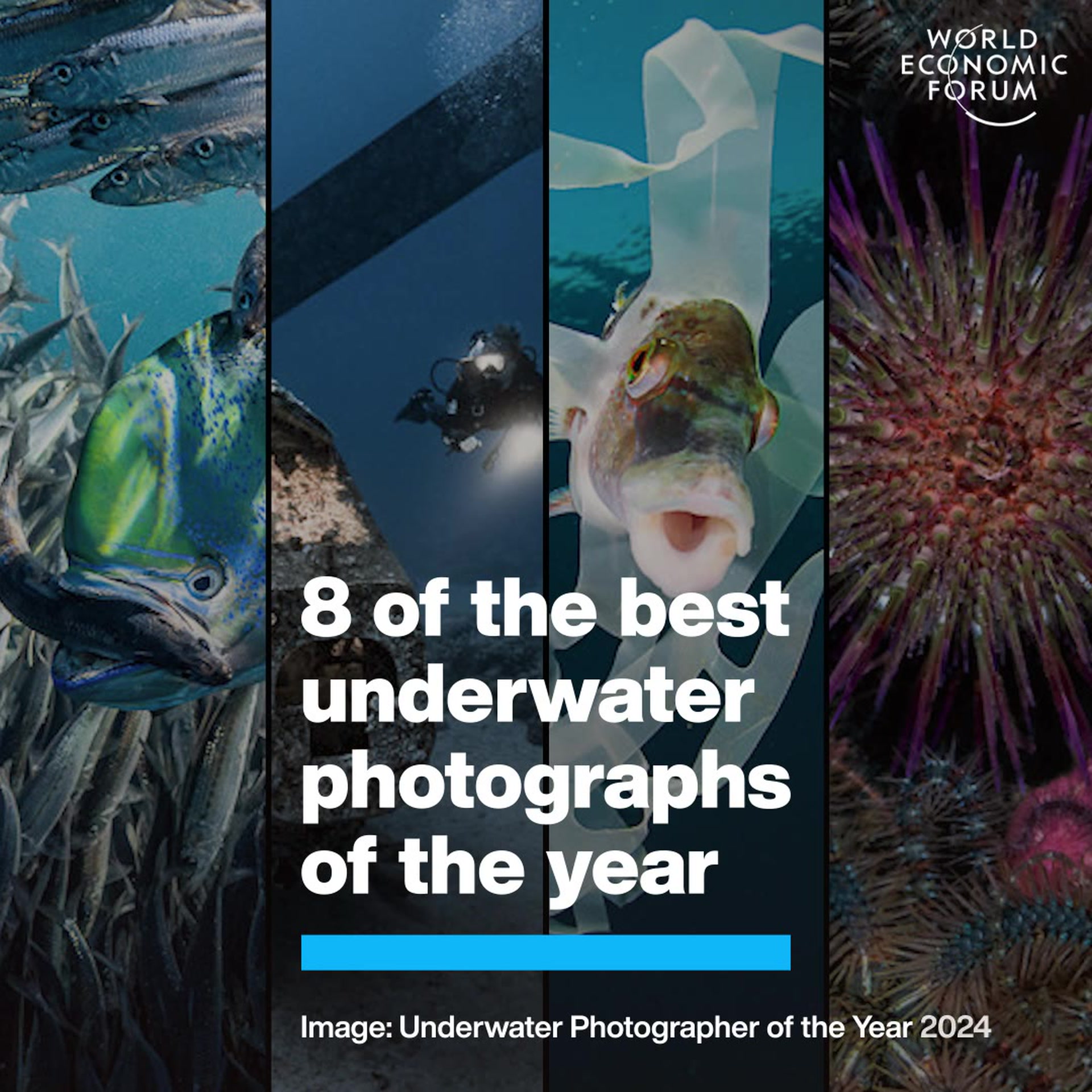New study suggests seafood retailers can protect biodiversity and profitability

A think tank highlights how retailers can use its Seafood Sustainability Protocol to assess the sustainability of their seafood products so as to "establish the link between sustainability and profitability." Image: Unsplash/NOAA

Get involved with our crowdsourced digital platform to deliver impact at scale
Stay up to date:
Ocean
- An increase in seafood sustainability alongside greater supply chain disclosure could improve the health of oceans while significantly boosting the profitability of major retailers, a new report has found.
- The report found the sales of the most overfished species had some of the lowest profit margins.
- Retailers should channel demand from unsustainable farming and overexploited wild stocks into sustainable management and production.
An increase in seafood sustainability matched with greater supply chain disclosure could improve the health of world's oceans while boosting the profitability of major retailers, an investigation by Planet Tracker has found.
In its latest report, "How retailers can be sustainable and profitable in seafood," the think tank highlights how retailers can use its Seafood Sustainability Protocol to assess the sustainability of their seafood products so as to "establish the link between sustainability and profitability."
Impact of Seafood Sustainability Protocol
Planet Tracker based its findings on a case study with French supermarket giant Carrefour, one of the world's largest food retailers, which analyzed over 4 million non-publicly available datapoints on seafood purchases from its French sites.
While demonstrating a positive performance or progress on 11 out of 13 key indicators set out by the Seafood Sustainability Protocol, Carrefour was also found to be generating some of its lowest profitability margins on sales of the most overfished species.
Planet Tracker said the results showed that increased seafood supply chain disclosure, rather than being a cost for retailers, could instead lead to a significant increase in profit for Carrefour.
"Increased seafood sustainability alongwith greater supply chain disclosure, rather than being a cost for retailers, could instead lead to a significant increase in profit for Carrefour."
”"Food retailers hold immense power when it comes to the sustainability of our oceans," said François Mosnier, head of the oceans program at Planet Tracker. "Anyone buying and selling seafood can make a positive impact by channelling demand out of unsustainable farming and overexploited wild stocks into sustainable management and production. Besides being the right thing to do, it's the business-smart thing to do. Our report found significant financial benefits to be gained from sustainable sourcing and enhanced disclosure."
What is the World Economic Forum doing about nature?
The report calls on seafood retailers to take four actions to enhance the sustainability of their supply chains, including determining "what stage they are at in the seafood sustainability journey" and implement sustainable strategies to make further progress. Planet Tracker also urges retailers to improve the transparency of their seafood supply chains, including setting a time-bound target on full seafood traceability. Retailers should then track and report their progress over time.
The Carrefour case study was conducted in collaboration with BNP Paribas AM and the firm's ESG Analyst and Biodiversity Lead, Robert-Alexandre Poujade, described overfishing as a "socio-environmental threat that the general public is aware of, but investors have not taken enough steps to understand."
"This project by Planet Tracker was born to rectify this," Poujade said. "Most large investors like BNP Paribas Asset Management are exposed to the seafood value chain via downstream actors, such as retailers or catering and need to take measures to reduce their contribution to the problem and preserve marine biodiversity."
The report calls on investors to engage with the companies they fund to demand greater seafood supply chain disclosure, changes to seafood sourcing policies towards more sustainable options, and the setting of "time-bound targets on seafood traceability."
Don't miss any update on this topic
Create a free account and access your personalized content collection with our latest publications and analyses.
License and Republishing
World Economic Forum articles may be republished in accordance with the Creative Commons Attribution-NonCommercial-NoDerivatives 4.0 International Public License, and in accordance with our Terms of Use.
The views expressed in this article are those of the author alone and not the World Economic Forum.
The Agenda Weekly
A weekly update of the most important issues driving the global agenda
You can unsubscribe at any time using the link in our emails. For more details, review our privacy policy.
More on OceanSee all
William Austin
April 17, 2024
Mark John Costello
April 8, 2024
Robin Pomeroy and Linda Lacina
March 28, 2024
Meg Jones
March 14, 2024







